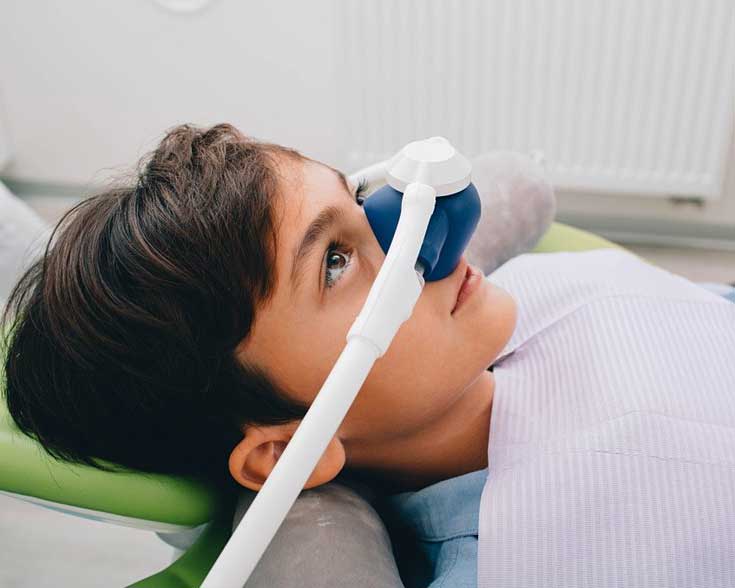
Sedation Dentistry: The Key to Pain-Free Dental Procedures in Mountain Home, AR
Dental anxiety is a common issue that prevents many individuals in Mountain Home, AR, from seeking essential dental care. However, there’s a solution that can transform your dental experience and make it virtually pain-free: sedation dentistry. In this comprehensive guide, we will explore the world of sedation dentistry and its remarkable benefits. From understanding the different types of sedation to how it can alleviate anxiety, we’ll delve into why it’s a game-changer for those seeking dental procedures. Say goodbye to dental phobia and discomfort, and embrace a more relaxed and pain-free approach to maintaining your oral health with sedation dentistry in Mountain Home, AR.
Types of Sedation in Dentistry
1. Oral Sedation: This involves taking a prescribed oral medication before your dental procedure. It induces a state of relaxation and drowsiness, reducing anxiety and discomfort during treatment. It’s commonly used for less invasive procedures.
2. Intravenous (IV) Sedation: Administered through an IV line, this type of sedation allows for precise control of the sedative’s effects. It’s often used for more complex or lengthy procedures, ensuring the patient remains comfortable and relaxed throughout the treatment.
Benefits of Sedation Dentistry
1. Anxiety Reduction: Sedation dentistry alleviates dental anxiety and phobia, making it easier for individuals with dental fears to receive necessary dental care.
2. Enhanced Comfort: Patients experience minimal discomfort or pain during procedures, creating a more pleasant and relaxed dental experience.
3. Efficient Treatment: Sedation allows dentists to perform multiple treatments in a single appointment, reducing the number of visits required for extensive dental work.
4. Patient Cooperation: Sedation is particularly beneficial for pediatric patients and those with special needs, ensuring their cooperation during treatments and improving overall oral health outcomes.
The Sedation Dentistry Process
1. Preparation: Before your sedation appointment, your dentist will review your medical history and discuss your sedation options. You may receive specific instructions about fasting and medication use.
2. During the Procedure: Depending on the chosen sedation method, you’ll receive the sedative either orally or intravenously. Throughout the procedure, a trained dental team will monitor your vital signs and ensure your comfort and safety.
3. Post-Sedation Care: After the procedure, you’ll be closely monitored during the recovery phase. You may experience some grogginess, so it’s essential to have a responsible adult accompany you and assist with transportation. Your dentist will provide post-sedation care instructions for a smooth recovery.
Safety Measures and Regulations
1. Licensed and Trained Professionals: Sedation dentistry in Mountain Home, AR, is strictly regulated. Dentists must undergo specialized training and obtain the necessary certifications to administer sedation safely. Dental teams are trained in emergency procedures.
2. Monitoring During Sedation: Throughout the procedure, a dedicated team continuously monitors your vital signs, ensuring your safety and well-being. They are equipped to respond to any unexpected events promptly.
3. Strict Protocols: Sedation dentistry facilities adhere to stringent safety protocols and guidelines established by dental associations and state regulatory bodies. These measures are in place to minimize risks and ensure the highest standard of care for patients undergoing sedation.
Who Can Benefit from Sedation Dentistry?
1. Dental Anxiety and Phobia: Individuals with severe dental anxiety or phobia can benefit immensely from sedation dentistry. It allows them to receive necessary dental care without experiencing the associated stress and fear.
2. Complex Procedures: Sedation dentistry is valuable for patients undergoing extensive or invasive dental procedures. It ensures their comfort and cooperation during treatments that may otherwise be challenging to tolerate.
Addressing Common Concerns
1. Safety: Sedation dentistry is a safe and well-regulated practice. Dentists and their teams undergo rigorous training to ensure patient safety during sedation. The use of modern monitoring equipment further enhances safety.
2. Effectiveness: Sedation techniques have a proven track record of success. Patients consistently report reduced anxiety and discomfort during dental procedures, making it an effective solution for those who would otherwise avoid dental care due to fear or anxiety.
Choosing the Right Dentist for Sedation
1. Qualifications: Look for a dentist in Mountain Home, AR, who is qualified and experienced in administering sedation. They should have the necessary certifications and training in sedation dentistry.
2. Communication: A good sedation dentist will take the time to discuss your sedation options, address any concerns, and create a personalized treatment plan that aligns with your specific needs and comfort level. Clear and open communication is key to a successful sedation experience.
Source : Gina L. Salatino DMD, FAGD
In Mountain Home, AR, sedation dentistry emerges as a transformative solution for those seeking pain-free dental procedures and overcoming anxiety. By offering various sedation options and prioritizing patient safety and comfort, sedation dentistry ensures that dental care is accessible and stress-free for all, ultimately improving oral health outcomes and well-being.




